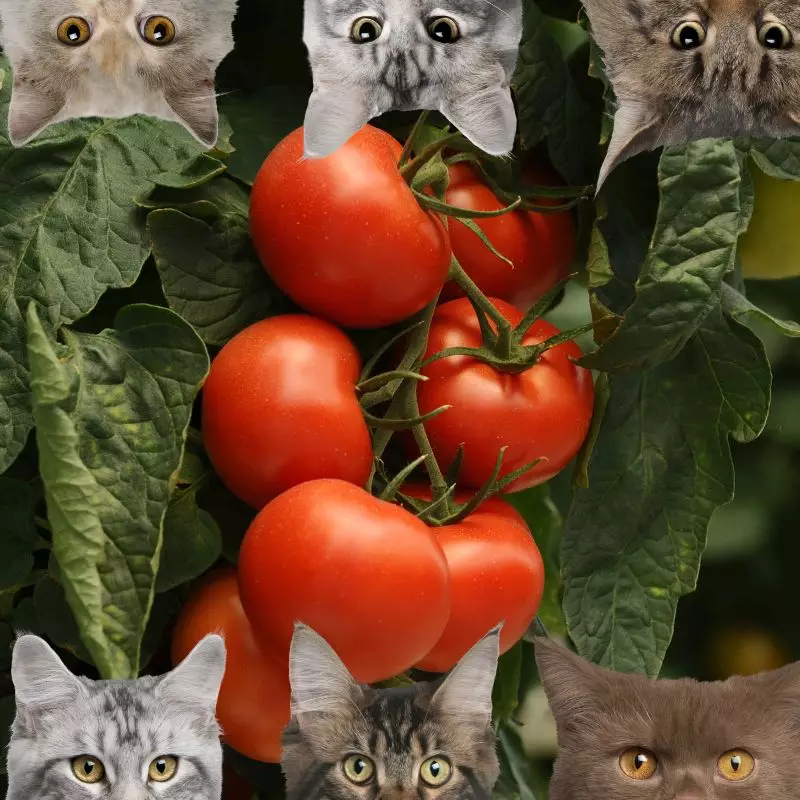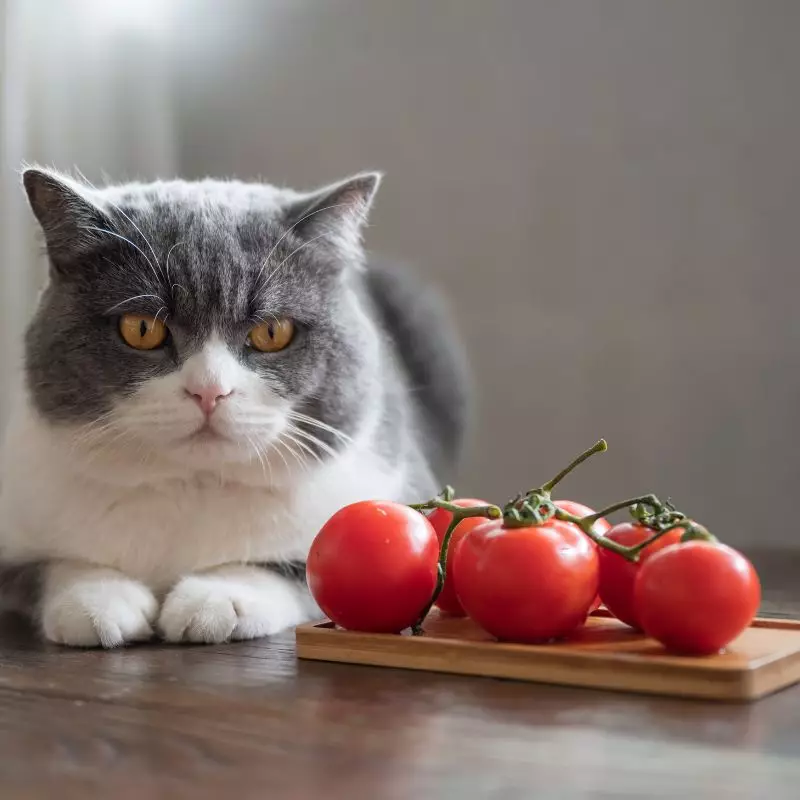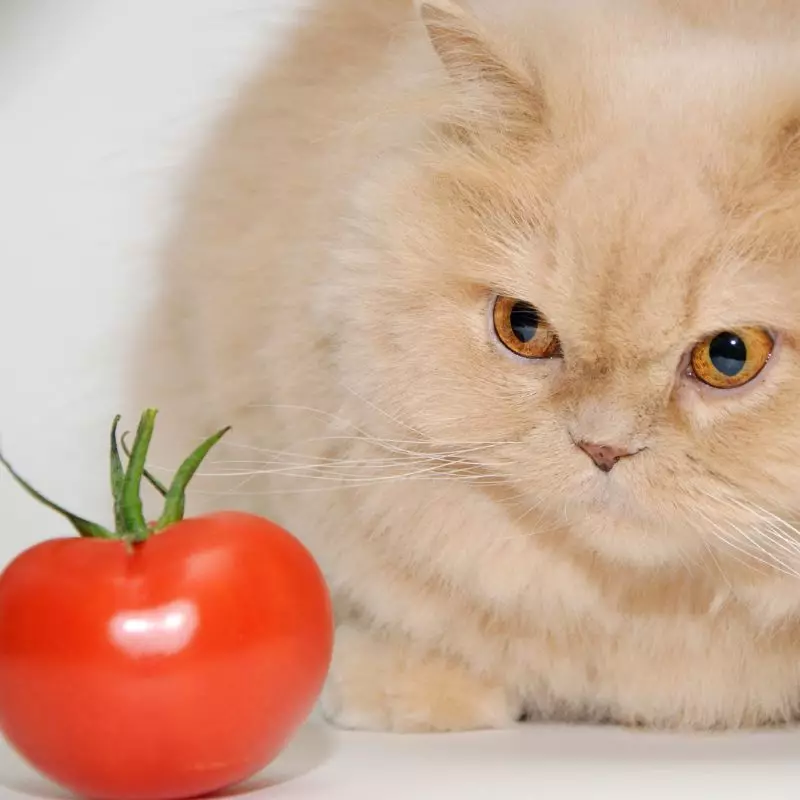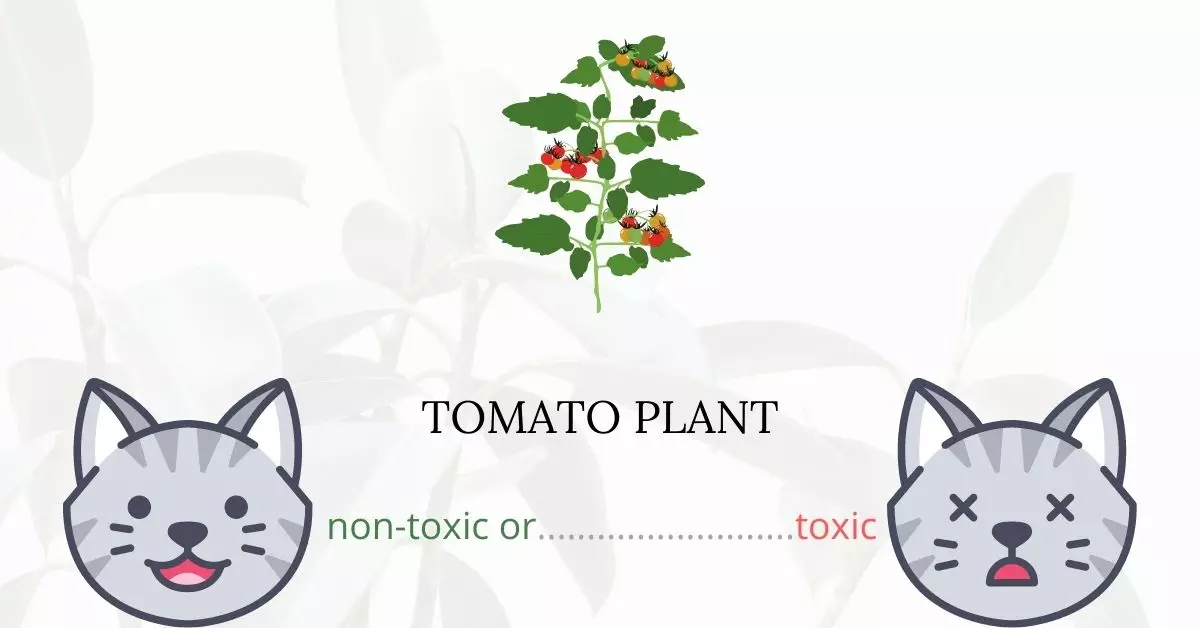Tomato plants indeed pose a risk to feline friends; humans may enjoy tomatoes without any adverse effects, but various components of the tomato plant can be toxic to cats. Particularly, the stems and leaves, containing solanine and alpha-tomatine, can cause harm if consumed by cats. These substances, especially in high quantities, can lead to unpleasant symptoms, though they are rarely fatal.
To ensure the accuracy and reliability of the information provided in this article, we have collaborated with a team of experienced Doctors of Veterinary Medicine (DVMs). With their invaluable contributions, we are able to offer the most current and precise details on the potential risks and effects associated with tomato plants and their impact on cats. Furthermore, this article is substantiated by extensive research from high-authority websites such as ASPCA and PetMD, reinforcing our commitment to providing dependable knowledge on every plant discussed.
Clinical Signs of Tomato Plant Poisoning in Cats

Understanding the clinical signs of tomato plant poisoning in cats is vital for prompt and appropriate intervention. Here, we detail each symptom and the underlying causes if a cat comes into contact with, inhales the aroma of, or consumes a tomato plant:
- Hypersalivation: Cats may experience excessive salivation as their body’s immediate response to the ingestion of the toxic components found in tomato plants, such as solanine and alpha-tomatine. This reaction is indicative of the irritation and discomfort in the oral cavity and gastrointestinal tract.
- Loss of Appetite: The ingestion of tomato plant parts can lead to a significant loss of appetite in cats. The toxins can cause gastrointestinal distress and discomfort, making the cat unwilling to eat.
- Severe Gastrointestinal Upset: Solanine and alpha-tomatine can irritate the gastrointestinal tract, resulting in severe gastrointestinal upset, which may manifest as vomiting, diarrhea, and abdominal pain, compromising the overall well-being of the cat.
- Central Nervous System Depression: Toxic substances in tomato plants can impact the cat’s central nervous system, causing symptoms like lethargy, decreased motor coordination, and potential alteration in mental status, reflecting the body’s struggle against the toxins.
- Weakness: Weakness is observed due to the body’s reduced energy levels and possibly the impact of toxins on the muscle function, as the body is focusing its resources on combating the ingested toxins.
- Dilated Pupils: Exposure to the toxins in tomato plants can lead to dilated pupils as a result of the cat’s autonomic nervous system response, signaling an alteration in normal physiological states, possibly due to the effects on the central nervous system.
- Slow Heart Rate: The consumption of tomato plant parts can affect the cat’s cardiac function, resulting in a slow heart rate. This symptom is a crucial indicator of the potential adverse effects of the toxic components on the cat’s cardiovascular system.
Remember, immediate veterinary consultation is essential if you suspect your cat has ingested or been in contact with tomato plants, to ensure timely and appropriate treatment and to mitigate the risks associated with toxicity.
First Aid and Treatment of Tomato Plant Poisoning in Cats

If your cat is not vomiting yet, the vet will induce vomiting with hydrogen peroxide solution. After that, activated charcoal can be administered to remove any remaining toxins from the cat’s body.
If your cat becomes dehydrated, the vet will use intravenous solutions to replace electrolytes and fluids. Your cat’s breathing may be compromised, necessitating the use of supplemental oxygen. If he is experiencing cardiac symptoms, the vet may administer a vasopressor to alleviate the problem.
Recovery from Tomato Plant Poisoning in Cats

Small amounts of tomato plant consumption may result in only mild symptoms. Your cat should recover completely once all of the toxins have been removed from his symptoms. In severe cases, recovery may take a longer time.
Prevention of Tomato Plant Poisoning in Cats
If at all possible, avoid growing tomato plants in your garden. Keeping your cats indoors will also assist to prevent their exposure to tomato plants and other potentially hazardous plants in your neighborhood.
If you love plants but have cats at home, check out these lists:





